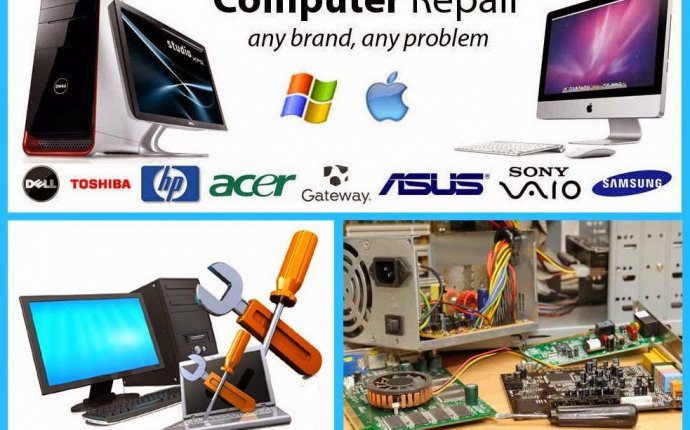
Start a computer repair business From Home
Malware, viruses, the dreaded blue screen of death - these threats and more plague computer owners who know enough to use their devices, but not enough to be able to fix them when something goes wrong. If you have knowledge and experience in keeping computers up and running, you can start a computer repair business quickly and affordably.
Computer repair technicians were paid an average of a little over $13 an hour in 2016 – and that’s if they worked in repair shops.
You could easily charge the equivalent at home, and even tack on a little more if you’re willing to pick up and deliver the finicky laptop or PC. But growing your computer repair enterprise into full-time work still requires effort, and many beginners start out on a part-time basis.
Advantages of Home Business Computer Repair
If you have the know-how, there are many pros to starting a computer repair business, including:
- It's a stable, in-demand service. Personal computers aren’t going anywhere. People of all ages and stages have computers they rely on for entertainment, banking, connecting with others and more. Unfortunately, there is also constant threat of viruses and other issues, especially for those who use their computer to go online. This creates a steady pool of clients.
- Flexible schedule. You can work on your own time. While you'll have to adapt your schedule to meet customers needs if you're making computer repairs at their homes, nothing stops you from rolling up your shirtsleeves at 3 a.m. if this is when you hit your stride.
- Can start part-time. Fixing computers can be started around a traditional job or other obligations.
- Your overhead should be negligible, particularly if you’re working out of your home. But you’ll want to make sure you have free or low-cost software with diagnostic capability and that you’re insured or bonded against mishaps.
Disadvantages of Home Business Computer Repair
While there are many advantages to starting a home business repair service, there are a few downsides, such as:
- Attracting customers can be a challenge in the beginning, whether you’re cold-calling potential clients, touting your computer repair skills at tech fairs, or handing out flyers at small businesses and residences. Expect more success if you market to computer owners than to businesses. They may not pay as much, but they’re usually less hesitant to hire someone who isn’t affiliated with a company since they just want their computer problems solved quickly and competently.
- More elaborate and complicated repairs will require an investment in tools, hardware, software and supplies, but you can subcontract this work out or charge a little more to repair serious issues.
- Decline in the cost of computers. Depending on the computer's problem, some people opt to buy a new one instead of fixing the one they have. One way to offset this trend is to also offer computer set-up, especially salvaging the data from the old computer and moving it to the new one.
What You’ll Need to Start Fixing Computers From Home
Repair service companies often require that their techs have college degrees in computer science, but someone who wants to fix computers from home can launch a business with knowledge and experience in cleaning, repairing or replacing hardware and software. Here are the steps to getting started.
- Decide what and how you'll offer your computer repair service. Will you include computer setup along with repair services? Will you go to clients' homes?
- Write a business plan and marketing plan, outlining all the details of your business and how you'll attract customers.
- Decide on your business structure and a business name. Once you have those, you can obtain your business license, if required in your area. You'll also want to open a business bank account.
- Buy or create marketing materials such as business cards, flyers and broshures.
- Research and build solid relationships with software and hardware vendors for affordable resources needed in providing your service.









